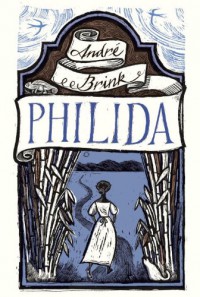Lost in the Stacks
I read widely and compulsively and my fancies are ever changing. My love of reading, however, is no mere fancy.
Philida, by Andre Brink.

Full disclosure: I received this book for free through the Amazon Vine program in exchange for a review.
Philida is the story of our eponymous heroine, who, in the novel's opening pages, makes her way to court to sue her baas for freedom: for herself and her children, fathered by her baas' son, Frans. (Side note: The Dutch word 'baas', meaning 'master', is the root of the English word 'boss'. Interesting, no?) It is 1832. In two years time, the British government will ban slavery throughout the empire, and among the slaveholding class this deadline looms fearfully ahead. For Philida, however, it can't come soon enough.
This is a good novel with a memorable protagonist, Philida. I can't help but compare it, however, to another novel of slavery under the British Empire I read earlier this year: Marlon James' The Book of Night Women , which focuses on the slave uprisings in Jamaica, roughly thirty years before the action of Philida. Both novels follow the lives of women born into slavery who, none the less, insist upon their own agency.. The two protagonists, Philida and Lillith, share much in common: murdered mothers, slave-owner fathers. Complex physical and emotional relationships with their white 'baas' and overseer. But though Philida contains beautiful, harmonizing imagery and a great character, it lacks the narrative energy of Book of Night Women, which I could not put down for a second. I recommend them both, but if you could only read one, I'd chooseNight Women.
 2
2



